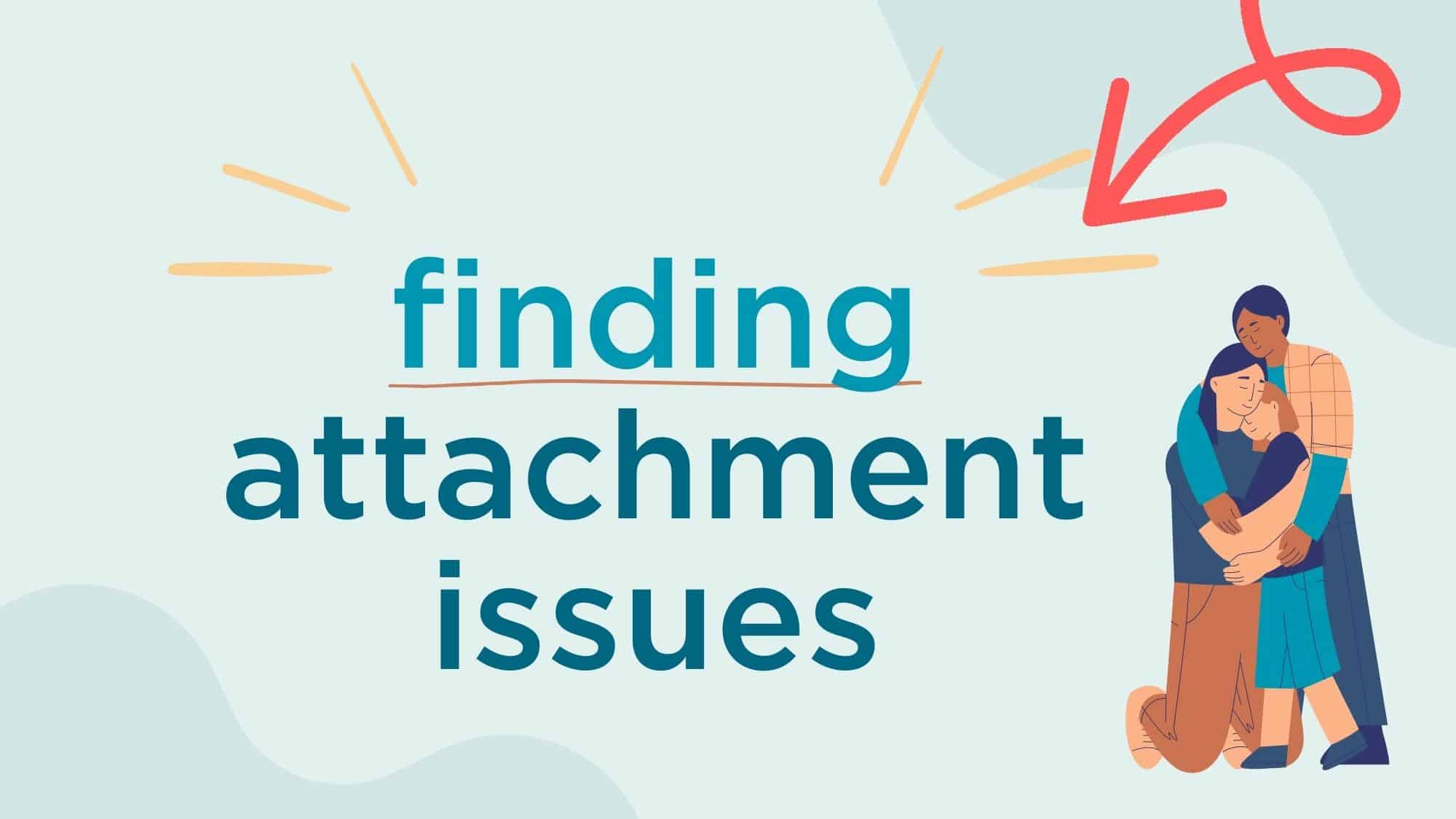I’ve heard that children placed for adoption can have attachment issues, even Reactive Attachment Disorder (RAD). I know what that is, but what questions do we need to ask the case worker to find out whether the child we’re considering adopting has an attachment disorder or not?
Let me say right off, be encouraged because you’re aware of—and you’re being proactive about—the possible issues your child may bring into your home. You are willing to find attachment issues and seek help in overcoming them. Attachment issues are on a broad continuum from mild to wild. While any child placed for adoption may be somewhere on that continuum, don’t jump to conclusions. There’s also the possibility she may have a secure attachment style and not be on that continuum at all.
5 Questions to Ask Your Case Worker
When finding attachment issues, no one list of questions can render a conclusive diagnosis on its own. Yet, to find out whether there’s the possibility of an attachment disorder, here are five key questions to ask your case worker.
1. Enough Validation from Birth Father
Ask what they know about the birth father’s involvement with the child. Was he present and engaged with the child whenever possible? Was he supportive of both the birth mother and the child? Did he come across harsh and “scary” toward the child? You’re listening to see if there was enough validation the father was able to provide the child.
Validate \ val’ uh date \ verb: To confirm, approve of, give official
sanction to; to establish as legitimate; to give positive affirmation and
approval as being a valuable person. This is done both verbally and
non-verbally.

Of course, if the birth father was absent altogether, there was no fatherly validation offered the child.
Anything you can learn about the birth father’s medical and mental health history will be invaluable information as well.
2. Enough Nurture from Birth Mother
Ask about the mother’s relationship with the child from the beginning up to the present day. Did she provide enough care and tenderness for to the child? Did she play regularly with the child? What was her demeanor whenever she interacted with the child?
What you want to learn is if the child has received enough nurturing from her birth mother.
Nurture \ ner’chur \ verb: To nourish, support, encourage, train; to
pour life into and help grow; to connect eye to eye, smile to smile,
skin to skin with the child on a regular, consistent basis. This is done
both physically and verbally.

There may have been some nurturing, but does it seem like enough for a child to subconsciously build a trusting attachment with her?
Find out everything you possibly can about her medical and mental health history.
3. Difficult Circumstances
Ask about the birth mother’s environment and the circumstances she encountered since having the child. What was her living situation? Was she in a safe and secure place? What social, economic, or relational transitions has she gone through from becoming pregnant until now? If she had to work, who looked after the child when she was working?
It’s important to look for circumstances that would have kept her from providing enough nurturing to the child; this is not because she didn’t want to, but because circumstances disrupted her ability to do so. You’re also trying to see if the environment was—or was not—such that the child was able to have at least one, consistent, “there whenever I need you” caregiver during the child’s first 12-24 months of life. You’re trying to hear if the environment for mother and baby was safe, secure, and stable.
4. Individual History
Another key piece in finding attachment issues is to ask if there was any known—or suspected—abuse, trauma or neglect the child has experienced. What is the reason the child is adoptable? While the case worker may not be able to provide solid proof any of these things happened, they may have enough information to have reasonable suspicion of such activity.
Note, it’s easy to focus your questions on abuse and trauma (bad things that happened to the child) and forget to ask about situations of neglect (good things that didn’t happen to the child). The reason for this is it’s hard to identify the negative impact of something that never happened. Besides, we don’t automatically think about the “good things that didn’t happen” as damaging to a child. Trauma specialists know that neglect is as damaging—if not more so—than abuse. And remember, think of abuse, trauma, and neglect not from an adult’s perspective, but from the child’s vantage point.
5. Other Issues
Ask if there’s any known—or again, suspected—other issues present in the child. Ask if there’s a possibility of:
- Fetal Alcohol Syndrome
- Developmental delays
- Learning difficulties or disorders
- Seizure disorders
- Sensory processing difficulties or disorders
- Autism Spectrum Disorder possibilities.
If any of these disorders, delays, or neurological issues are suspected, make plans to have a full neuropsychological assessment completed on your child as soon as possible, even if you have to wait until after the adoption is finalized.
Sometimes the case worker you’re working with will be able to provide some or all of this information to you. If so, you’re blessed. Other times, however, they may have very little background information on the child to pass along to you. Be bold and take the time to ask anyway.

The three major pieces of information you’re trying to find out about are:
1. Was there enough validation the child received from their birth father
2. Was there enough nurturing the child received from their birth mother
3. Was the environment surrounding the child safe and stable enough for the child to develop a trusting attachment to at least one primary caregiver during the first 12-24 months of their life?
A lack of enough validation, nurture, or safety/stability is often all it takes for a child to end up somewhere along the attachment disorder continuum. It warrants looking further and deeper into possible attachment issues.
If you ask these key questions, you will be better equipped to help your child transition into your home. It will help you and the child alike.

Do Your Own Research
Finally, take the time and effort to read about attachment issues and the various possible issues mentioned above. This enables you to know what to look and listen for when finding attachment issues. It will also give you a heads up so you can take action if or when you notice something in your child’s behavior that doesn’t seem healthy.
If you have more questions you can call our Counseling department for a free over-the-phone consultation about your specific situation. One of our licensed or pastoral counselors would be happy to discuss any concerns you may have. They can also provide you with referrals to a professional counselor in your area who has experience with attachment, trauma-based issues, or other concerns you may have along your adoption journey.
Resources
Web articles:
Parenting a Child with Attachment Issues
The Adoptive Journey: An Honest Look at What You Really Need to Know




















